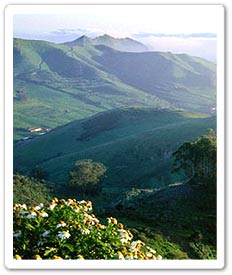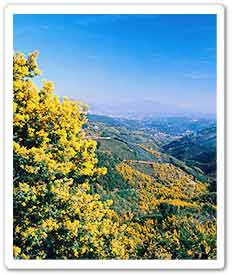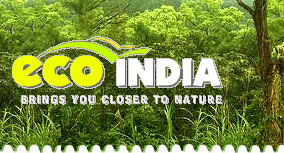 The
International Ecotourism Standard has been developed by the Ecotourism
Australia in conjunction with the Cooperative Research Centre (CRC) for
Sustainable Tourism of Australia. The International Ecotourism Standard is
based on the highly successful Australian Eco Certification Program, Agenda
21, and guiding principles for sound ecotourism certification (Mohonk
Agreement) developed by a gathering of ecotourism certification experts at
Mohonk Mountain, New York State, USA in November 2001. Green Globe 21 has
the exclusive licence for the distribution and management of the
International Ecotourism Standard. Green Globe 21 is the global Affiliation,
Benchmarking and Certification program for sustainable travel and tourism.
The Green Globe brand signifies better environmental performance, improved
community interactions, savings through using fewer resources and greater
yields from increased consumer demand.
The
International Ecotourism Standard has been developed by the Ecotourism
Australia in conjunction with the Cooperative Research Centre (CRC) for
Sustainable Tourism of Australia. The International Ecotourism Standard is
based on the highly successful Australian Eco Certification Program, Agenda
21, and guiding principles for sound ecotourism certification (Mohonk
Agreement) developed by a gathering of ecotourism certification experts at
Mohonk Mountain, New York State, USA in November 2001. Green Globe 21 has
the exclusive licence for the distribution and management of the
International Ecotourism Standard. Green Globe 21 is the global Affiliation,
Benchmarking and Certification program for sustainable travel and tourism.
The Green Globe brand signifies better environmental performance, improved
community interactions, savings through using fewer resources and greater
yields from increased consumer demand. The International Ecotourism Standard is based principally on the highly regarded Australian Eco Certification Program Standard combined with elements of the very latest Green Globe Benchmarking performance system. Criteria have been adapted to ensure their applicability in an international setting and both the Standard and Certification Program incorporate the fundamental principles for sound ecotourism certification identified in the Mohonk Agreement.
Eco-tourism : Definition and Key Principles
The Green Globe 21 International Ecotourism Standard has adopted Ecotourism Australia's definition of ecotourism :
"Ecologically sustainable tourism with a primary focus on experiencing natural areas that fosters environmental and cultural understanding, appreciation and conservation." However, a more definitive “definition” of ecotourism is the expansion of this statement into a core set of principles with specific performance indicators (i.e. the key ecotourism performance areas).
The core set of eight principles for ecotourism products are :
Nature Area Focus
Focus on giving visitors the opportunity to personally and directly experience nature.
Interpretation
Provide opportunities to experience nature in ways that lead to greater understanding, appreciation and enjoyment.
Environmental Sustainability Practice

Represent best practice for environmentally sustainable tourism.
Contribution to Conservation
Contribute directly to the conservation of natural areas
Benefiting Local Communities
Provide ongoing contributions to the local community.
Cultural Respect
Be sensitive to, interpret and involve the culture/s existing in the area.
Customer Satisfaction
Consistently meets consumer expectations.
Responsible Marketing
Be marketed and promoted honestly and accurately so that realistic expectations are formed.
These principles have been used to develop the Standard criteria – with specific indicators for each of these eight performance areas. The criteria support the major principles and are based on a hybrid of 'process' (i.e. creating a documented procedure) and 'performance' (e.g. that sewage treatment meets certain effluent standards) standards.
Although some criteria are relatively general and rely on a commitment by the operator to implement a process to meet a desired outcomes (e.g. provision of an interpretation plan in order to stimulate better designed interpretative activities, leading to quality experiences) there is distinct emphasis on specific performance indicators. These are technically prescriptive and deliberately target real environmental outcomes. These criteria include quantification of environmental performance for most of the key environmental indicators. This allows recognition and encouragement of ecotourism product that makes measured environmental improvements which result in a more sustainable world.






